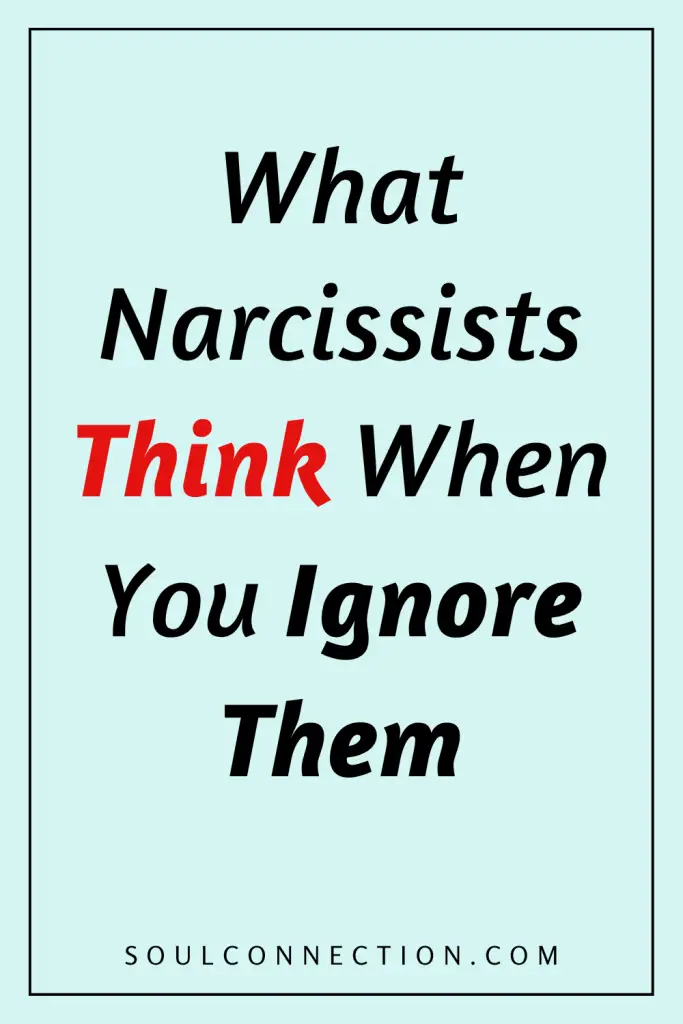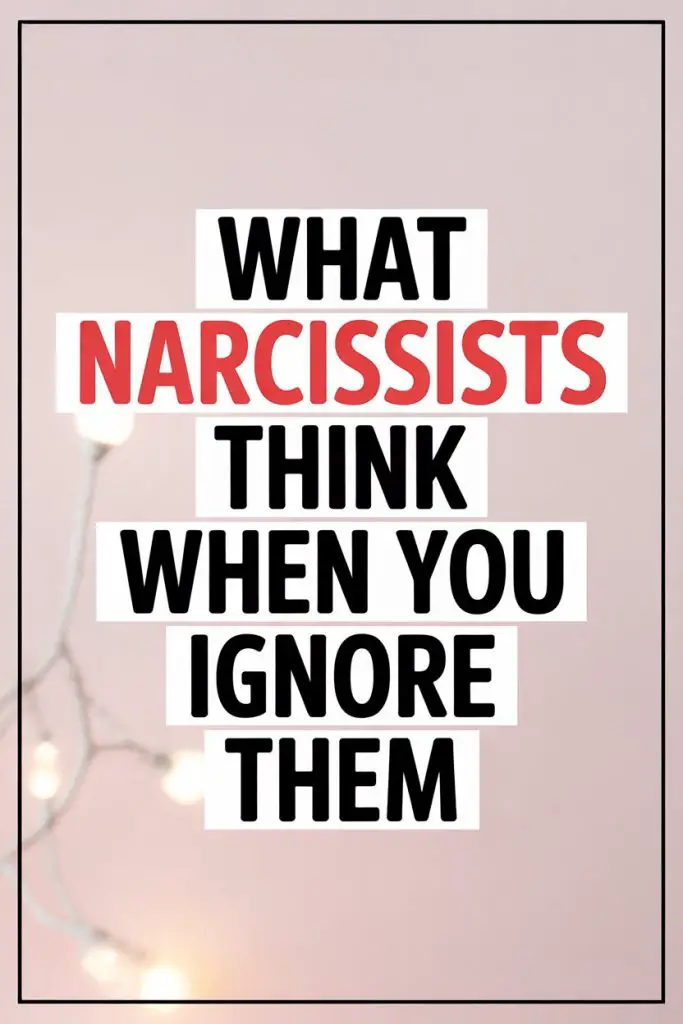Ignore a narcissist? Now you’ve poked the bear in a velvet robe. For folks tangled up with narcissists—romantically, at work, or in the family group chat—silence is not just golden, it’s titanium.
The moment you stop feeding them attention, something fascinating and, frankly, a bit theatrical happens in their minds.
Ready for a peek behind the curtain? Grab your cup of tea (or something stronger), because this is the internal drama most narcissists won’t admit to—at least, not without an audience.
The Narcissist’s Ego Takes Center Stage
The moment you go quiet, a narcissist’s ego limbers up for its starring role. At their core, narcissists are powered by external validation; attention is their emotional oxygen, the applause they crave.
Take that away, and the ego wobbles. Fast.
Their first thought? “How dare you!” The lack of response feels not just rude but disrespectful, if not a full-on assault. Your silence doesn’t say, “I need space.”
To a narcissist, it screams, “You’re not important.” And there are few things less tolerable to someone who’s convinced the world spins for their benefit.
Confusion and Paranoia Brew
That silence from you? It’s not just a gap in conversation. To the narcissist, it’s a mystery novel—one where they’re determined to find the culprit (hint: it’s always you).
Cue the mental replay. Every interaction, text, missed call, and eyebrow raise is scrutinized. “Did I say something wrong?” is quickly replaced by, “What’s wrong with them? Why are they being so unreasonable?”
The confusion flirts with paranoia. Suddenly, your absence is proof of betrayal or a plot twist worthy of a soap opera.
The Blame Game Gets Underway
Narcissists don’t just dislike accountability. They treat it like a rash: something to avoid, cover up, or blame on someone else.
When you ignore them, the internal narrative rarely lands on, “Maybe I did something to upset them.” Instead, it’s, “They’re overreacting,” or, “They’re clearly ungrateful.”
This mental blame shuffle is self-protection. If the narcissist can’t be at fault, then you must be. Expect the seeds of a guilt trip to be sown—even if only in their mind at first.
Scheming for Attention
Ever noticed how, when you don’t respond, the narcissist’s texts get oddly more frequent, dramatic, or even apologetic? That’s not an accident.
Your silence is like a riddle they feel compelled to solve. “Why aren’t they responding? What can I do to make them engage?”
The tactics may range from sending memes you once laughed at to guilt-laden “Are you okay?” messages, or even angry outbursts. Each is a bid for you to break your silence and restore their usual supply of attention.
Behind the scenes, it’s desperation in a party hat. The narcissist isn’t just missing your company; they’re missing the ego strokes that make their world go round.
Feeling Threatened by Loss of Control
For a narcissist, control is everything. Not in the “must-organize-the-linen-closet” sense, but more “must-script-every-interaction” style. When you ignore them, they sense that grip slipping.
Suddenly, you’re not playing the part they assigned you. This loss of control is deeply unsettling. “If I can’t make you respond, what else in my world can’t I control?”
That thought festers, often leading to increasingly elaborate attempts to win your attention back—or undermine your silence with rumors, triangulation, or passive-aggressive antics.
Rage Bubbles Beneath the Surface
While some narcissists mask it well, many can’t hide their indignation when ignored. Even if you’re doing something as harmless as taking a digital detox, they may feel slighted.
This is where the infamous “narcissistic rage” sometimes raises its head. The anger isn’t always explosive; sometimes it’s icy, subtle, or laced into a long-winded Facebook post clearly aimed at you.
Underneath it all is a simple equation: “If you won’t admire me, I’ll punish you for it.”
Attempts at Reasserting Power
After the initial scramble, some narcissists shift gears. Fine, you’re not responding? They’ll show you who’s boss. This can look like cold indifference, flaunting new friends, or crafting stories about how little they care about your silence.
It’s a bluff: a last-ditch effort to flip the power balance. If you genuinely don’t react, expect their show of strength to fizzle into something more desperate—or for them to move on to a new audience.
Devaluation and Smear Campaigns
Ignore a narcissist for long enough, and you might find yourself recast as the villain in their personal saga. Where you were once adored (or at least, tolerated), you now become the “problematic ex,” “ungrateful friend,” or “jealous co-worker.”
This isn’t just pettiness (well, not entirely). It’s about protecting their fragile self-image. If you’re ignoring them, the story must shift: “They’re not ignoring me because I was awful. They’re just terrible people.”
This narrative gets broadcast to anyone who’ll listen, sometimes decorated with juicy embellishments.
The Fading Interest—Or the Hoover Maneuver
Eventually, if you hold your ground, many narcissists lose interest and redirect their attention to someone else. There’s only so long they’ll keep barking up a tree that won’t drop any apples.
But don’t be shocked if they circle back. The “hoover” is real: reaching out, sometimes months later, with a message designed to suck you back into their orbit. (“Hey, just thinking about you! Hope you’re well.”)
It’s not nostalgia; it’s fishing for a response, any response, to feed their self-importance.
What You Can Actually Do About It
No need to become a statue. If you’re ignoring a narcissist as a boundary, you’re probably already exhausted by the emotional Olympics they’ve made you run.
Here are some practical moves for tonight—and every day you need to hold your ground:
- Stick to your silence. If your goal is to reclaim space, consistent boundaries chip away at their hold.
- Limit your exposure. Block, mute, or grey rock as needed. There’s no prize for enduring harassment.
- Don’t engage with the guilt trips. “You’re so cold,” and “How could you do this to me?” are just attempts to reel you back in.
- Stay factual if you must communicate—think “Weather’s nice,” or “Yes, the dog is fine.” Emotion is their playground; don’t bring a ball.
- Seek support. Friends, therapists, and support groups can help you sort reality from narcissist fiction—and back you up when doubt creeps in.
The Power of Your Silence
Ignoring a narcissist isn’t cruel. It’s the emotional equivalent of not pouring water on a gremlin after midnight—it stops the cycle from multiplying.
By stepping back, you force them to deal with the vacuum you leave behind, and that’s where their real anxieties bubble up. Their frantic attempts to regain your attention aren’t about you—they’re about the cravings of their ego.
If you’re standing your ground right now, be gentle with yourself. It’s not easy, but you’re not the villain here. You’re just reclaiming the starring role in your own story.
And if the narcissist tries to rewrite the script? Well, you’ve always got the power to refuse a comeback tour.


